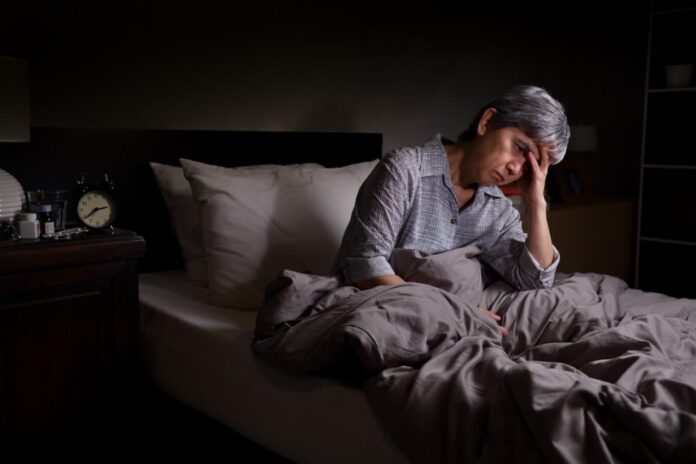Dr. Alexander Sweetman from Flinders University suggests that sleeping pills aren’t the only option for treating insomnia. He recommends considering self-guided digital behavioral therapy as an alternative solution.
There is a dearth of psychologists with training in cognitive behavioral therapy for insomnia (CBTi), which limits access to this treatment even if data suggests it is helpful. In Australia, the majority of patients with insomnia are given sleeping drugs, and very few are referred to psychologists for cognitive behavioral therapy.
‘Bedtime Window’ is a new program designed to aid insomnia patients. It was developed and tested by sleep experts from Flinders University and the University of Western Australia. The program is a self-guided digital cognitive behavioral therapy for insomnia (CBTi). According to Dr. Alexander Sweetman, who led the research, the program proved effective in improving sleep, daytime function, and mental health.
He said, “We know that CBTi improves insomnia, mental health, and quality of life, and we want to see more people accessing this treatment because it can reduce the need for sleeping pills or other interventions that may not tackle long-term sleep problems.”
Obstructive sleep apnea (OSA) and insomnia are prevalent sleep disorders that frequently co-occur. About 30–40% of individuals who have insomnia also have OSA; nevertheless, many OSA cases remain misdiagnosed and untreated.
Dr. Sweetman explains that individuals with both insomnia and sleep apnea (COMISA) typically experience worse sleep quality, daytime functioning, mental and physical health, productivity, and overall quality of life compared to those without either disorder or with just one.
According to recent research, individuals with COMISA have a 50–70% increased chance of dying over the course of 10–20 years as compared to those without similar illnesses.
Due to its frequent occurrence and associated health hazards, Dr. Sweetman emphasizes the significance of creating an efficient management strategy for co-occurring insomnia and sleep apnea (COMISA).To address this, they made a self-guided digital cognitive behavioral therapy for insomnia (CBTi) program suitable for those with insomnia alone or COMISA.
Using the program resulted in significant and long-lasting improvements in insomnia symptoms and related mental health difficulties over 18 months in a trial including 62 persons with insomnia symptoms.
According to Dr. Sweetman, the program is designed for those with sleep apnea, insomnia, or insomnia alone (COMISA). Users read material and view brief videos for 20 to 30 minutes weekly.
The program includes various treatments, such as education about sleep, controlling stimuli, limiting sleep time, relaxation techniques, changing thoughts about sleep, and tips for better sleep habits. It also has features that check for sleepiness and alertness and give personalized suggestions to improve sleep without worsening daytime sleepiness.
Before making this digital insomnia therapy available to people with COMISA in healthcare systems, Dr. Sweetman proposes that further research be done to determine its efficacy, safety, and acceptance in those with diagnosed sleep apnea.
This study shows that self-guided digital therapy can be a helpful way to treat sleep problems without medication. However, more research is needed to ensure it’s safe and works well for everyone, especially those with sleep apnea. If proven effective, this therapy could become more widely available in healthcare systems.
Journal reference:
- Alexander Sweetman, Chelsea Reynolds, et al., Effect of high-risk sleep apnea on treatment response to a tailored digital cognitive behavioral therapy for insomnia program: a quasi-experimental trial. Frontiers in Sleep. DOI: 10.3389/frsle.2024.1355468.
